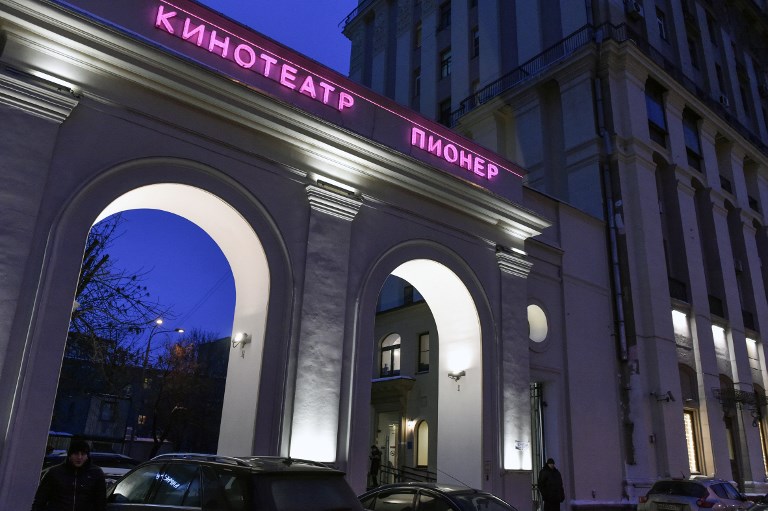
by Ola CICHOWLAS
Agence France-Presse
MOSCOW, Russia (AFP) — A Moscow cinema which screened British comedy “The Death of Stalin” in defiance of an official ban has announced that it will stop showing the film after a raid by Russian police on Friday.
The culture ministry on Tuesday withdrew permission to screen British director Armando Iannucci’s film, which satirises the death of the dictator after Russian officials labelled it offensive and “extremist”.
But Moscow cinema Pioneer, named after the Soviet youth organisation, had decided to go ahead with its screenings of the film.
Reports of the cinema’s planned defiance led the culture ministry on Thursday to warn movie houses they would bear “legal responsibility” for showing the film.
On Friday, six policemen accompanied by a group of men in civilian clothing went to the cinema following a matinee screening of the film, and at one point held an administrator and other cinema employees behind closed doors.
Asked by AFP why they were there, the policemen repeatedly refused to give an answer. “We just wanted to go to the cinema at lunch,” one said.
The cinema’s employees did not comment on the decision to screen the film despite the ban and said they were not warned prior to the visit from law enforcement officers.
Later on Friday, Pioneer Cinema, which is owned by oligarch Alexander Mamut and is popular among the Russian liberal elite, said it would cease showing the film.
“Dear friends, for reasons not up to us, the Pioneer cinema is obliged to cancel screenings of the film ‘The Death of Stalin’ from January 27,” the cinema said on its website.
Anyone who has bought a ticket to a future screening will be reimbursed, it added.
‘Laughing through tears’
Following the screening, but before the arrival of police, AFP spoke to Russians who watched the film that takes a sardonic look at the power scramble after Stalin’s 1953 death.
“Now I feel like doing something else that’s forbidden, like going to eat some Parmesan,” said Leonid Parfyonov, a liberal journalist and filmmaker, as he came out of the screening — a reference to the ban on Western food products in Russia.
Olga Gannushkina, 64, said she was grateful to the cinema for not cancelling the screening and welcomed that a foreign director had made a film about the late Soviet dictator. “I think Russians are still scared to laugh about this,” she said.
She added that this was not always the case, saying she missed satirical TV shows of the 1990s that made fun of political leaders, including the then president Boris Yeltsin.
“I wish we still had those shows and that we could laugh at our current leaders, too. It’s not a sin,” she said.
Other viewers said the film was more of a tragedy than a comedy.
Roman Laing, 25, said he came to the cinema after seeing on social media that it was still showing the film.
“It’s not actually a comedy, it’s a sad film. But as the fate of our country has often been so sad, we are used to laughing through tears,” he said.
He admitted the film “may have gone a little too far” at times but added that “it’s a shame we (Russians) have still not been able to make films laughing at Stalin”.
Writing on Twitter, The Death of Stalin’s Scottish director Armando Iannucci thanked Russians for “all the messages of support” this week.
“It means a lot. I’m still hoping you get to see the film soon,” he wrote.
© Agence France-Presse







